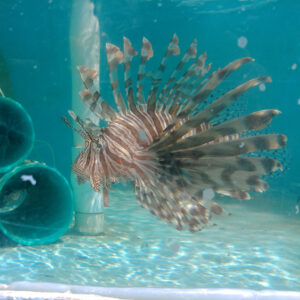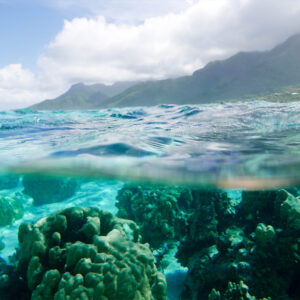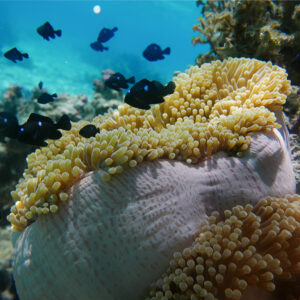Changing Energy Budgets

Does the lionfish’s digestive physiology facilitate its invasion ecology?
Lionfish are invasive predators threatening marine ecosystems in the western Atlantic Ocean and Mediterranean. Our research is investigating the digestive physiology and energy budget of lionfish and how this may facilitate their invasiveness.
Collaborators: Steven Cooke
Funding support: NSERC, UCSB

Can fish feces rescue corals from thermal stress?
Coral reefs are in danger because warming ocean temperatures are leading to mass coral bleaching events where the corals expel their symbiotic algae. External nutrient inputs are critical for coral success and fishes are one of the most important nutrient sources on coral reefs. Our work is examining how fish feces may serve as a vital and underappreciated resource for coral health, growth, and recovery from thermal stressors.
Collaborators: Deron Burkepile, Adrienne Correa
Funding support: UCSB Faculty Research Grant

How do energy budget trade-offs impact thermal tolerance?
Temperature profoundly affects performance and energy budgets in fish. A fish must have sufficient aerobic capacity to thrive (e.g. to perform activities such as locomotion, defense, foraging, digestion, courtship, and reproduction). However, thermal performance curves differ across activities and among fishes. We are investigating how energy budgets change across widely varying species and conditions.
Funding support: UCSB Faculty Research Grant
